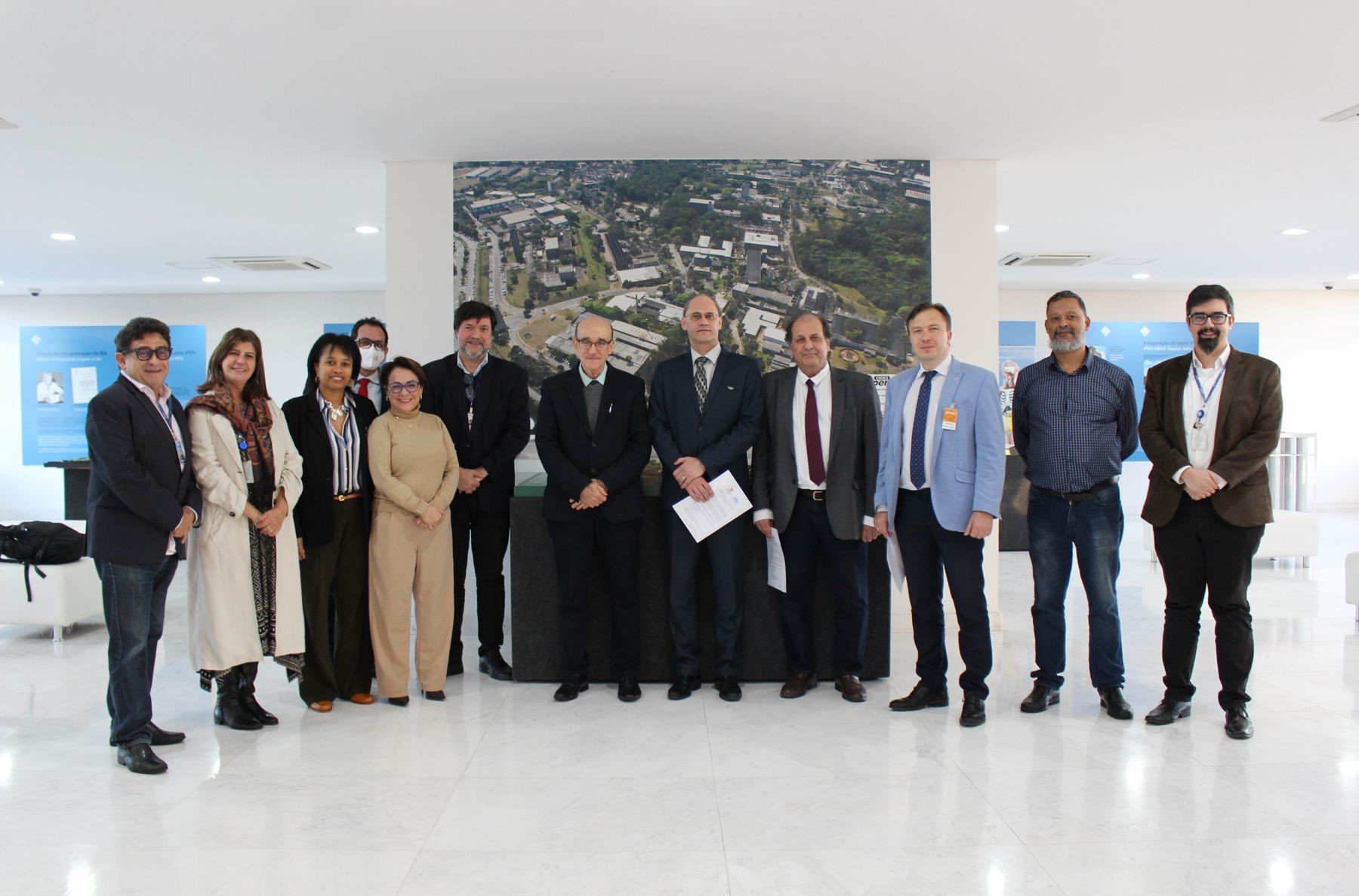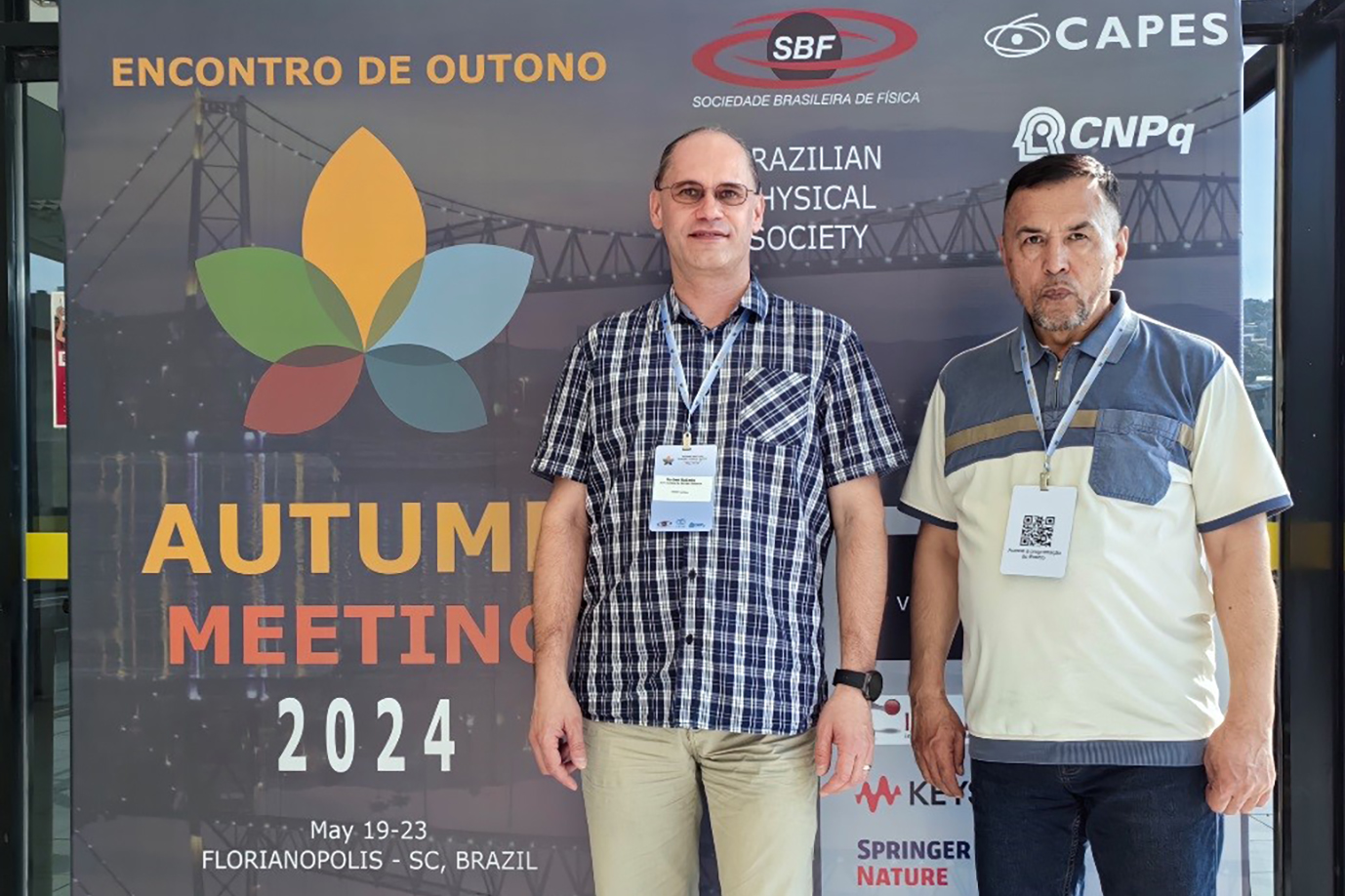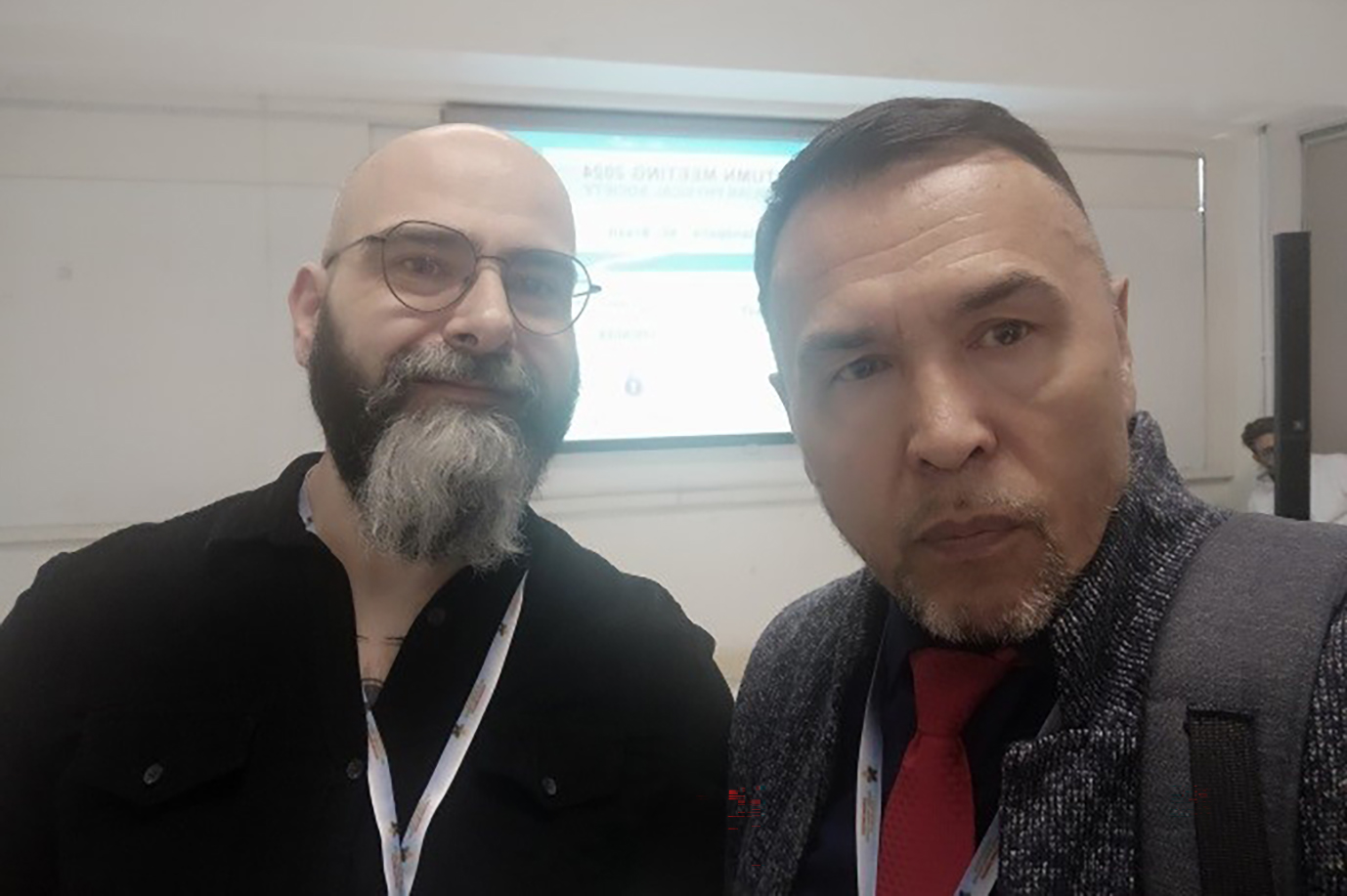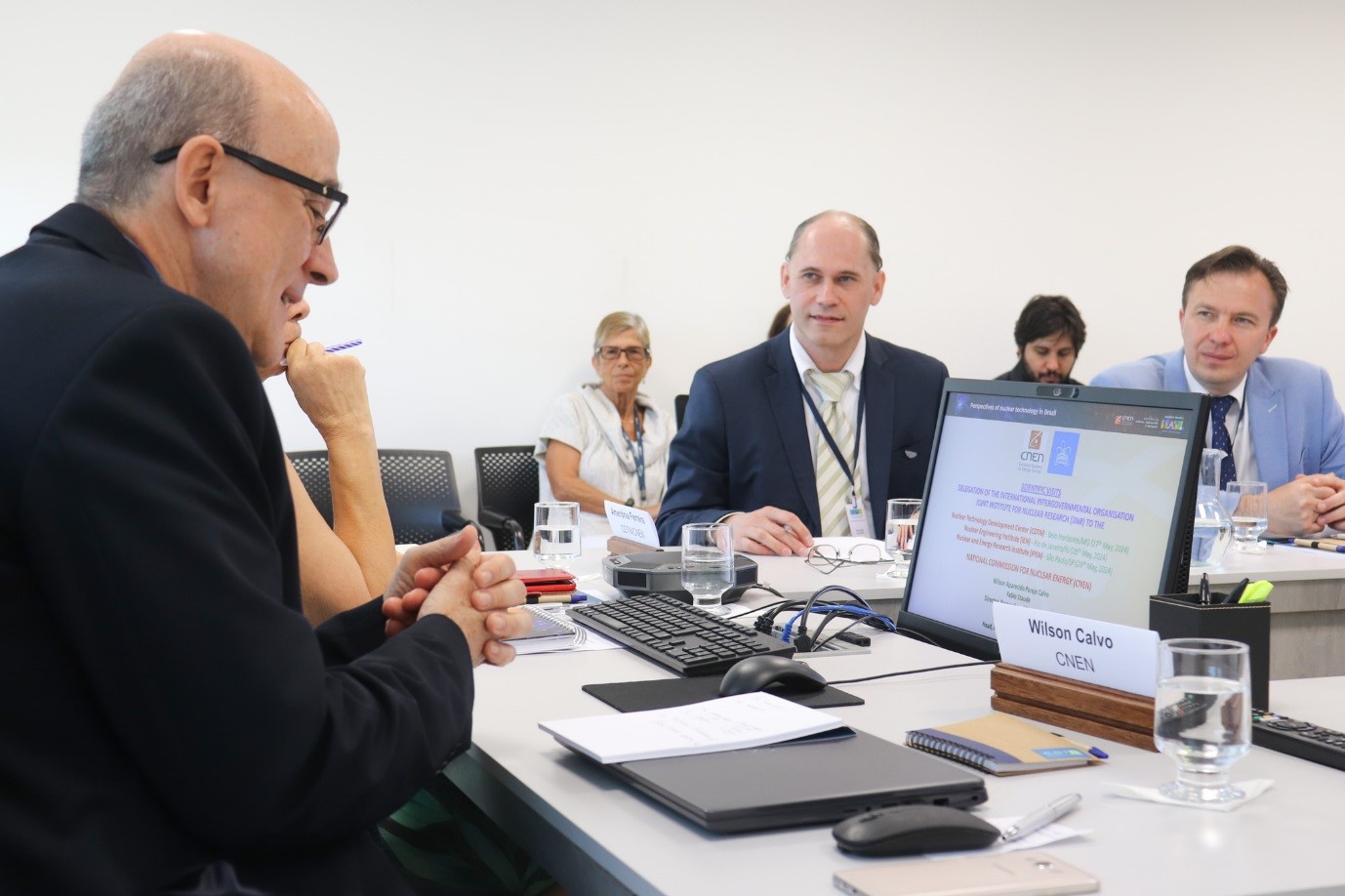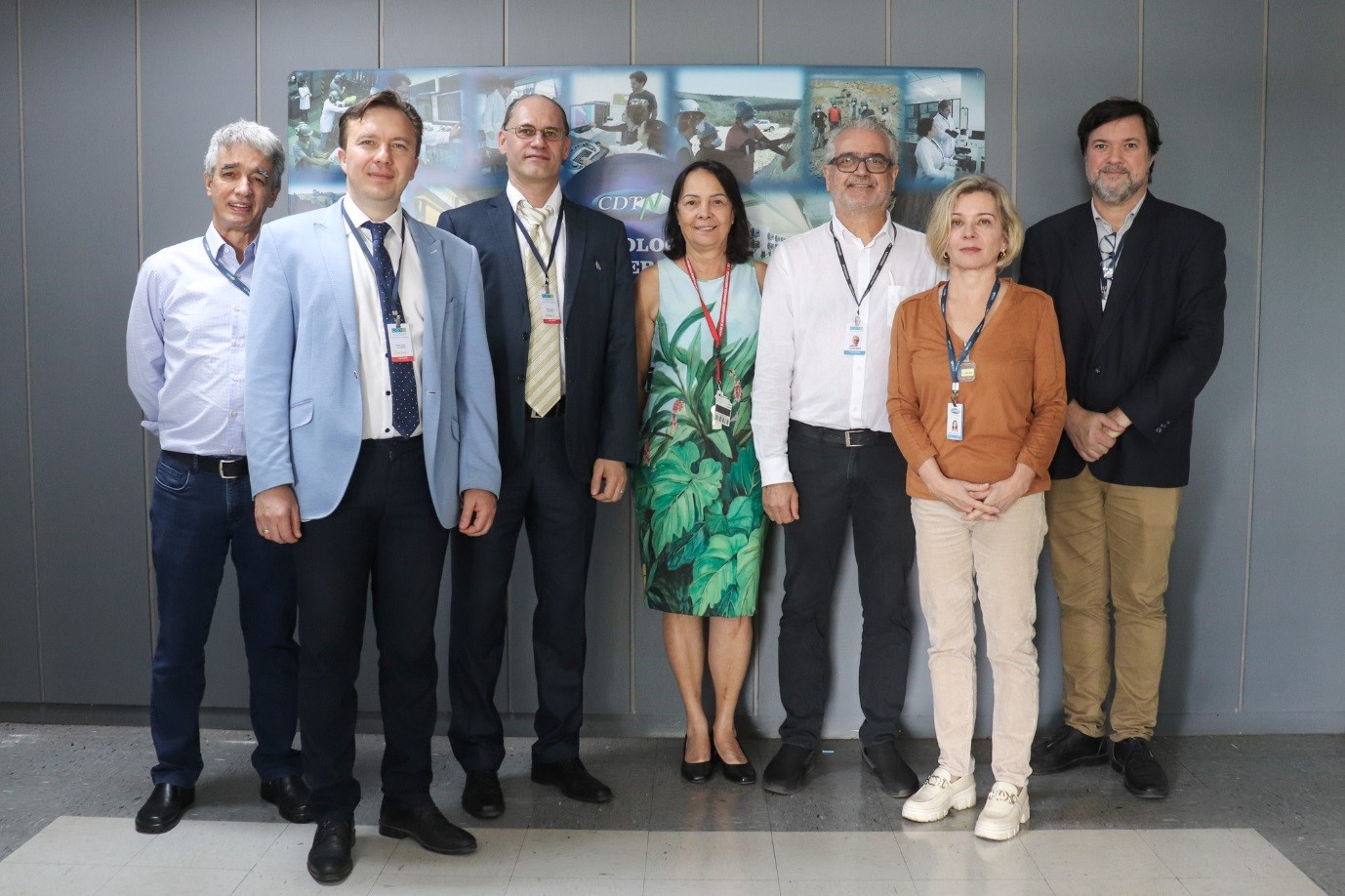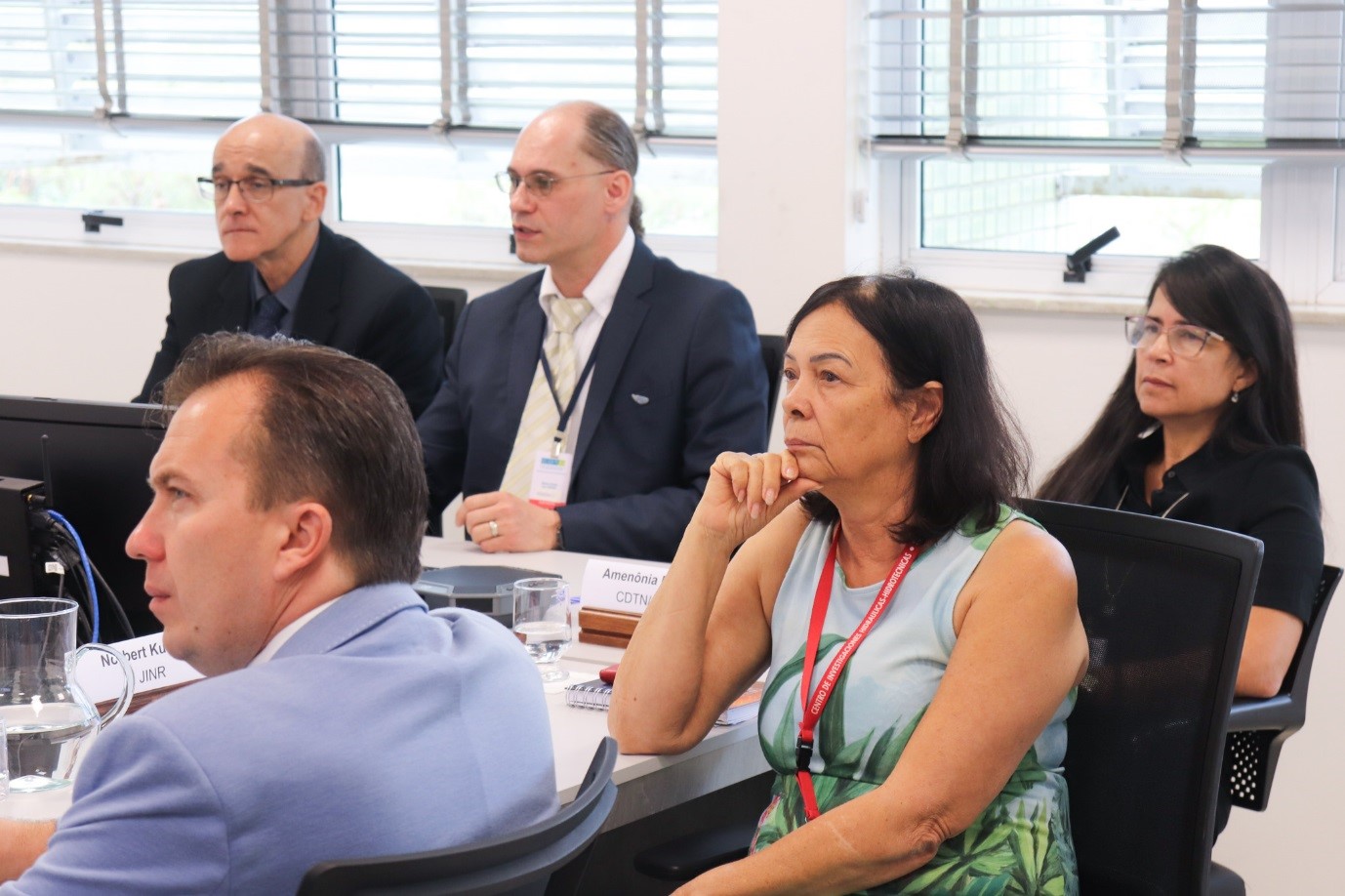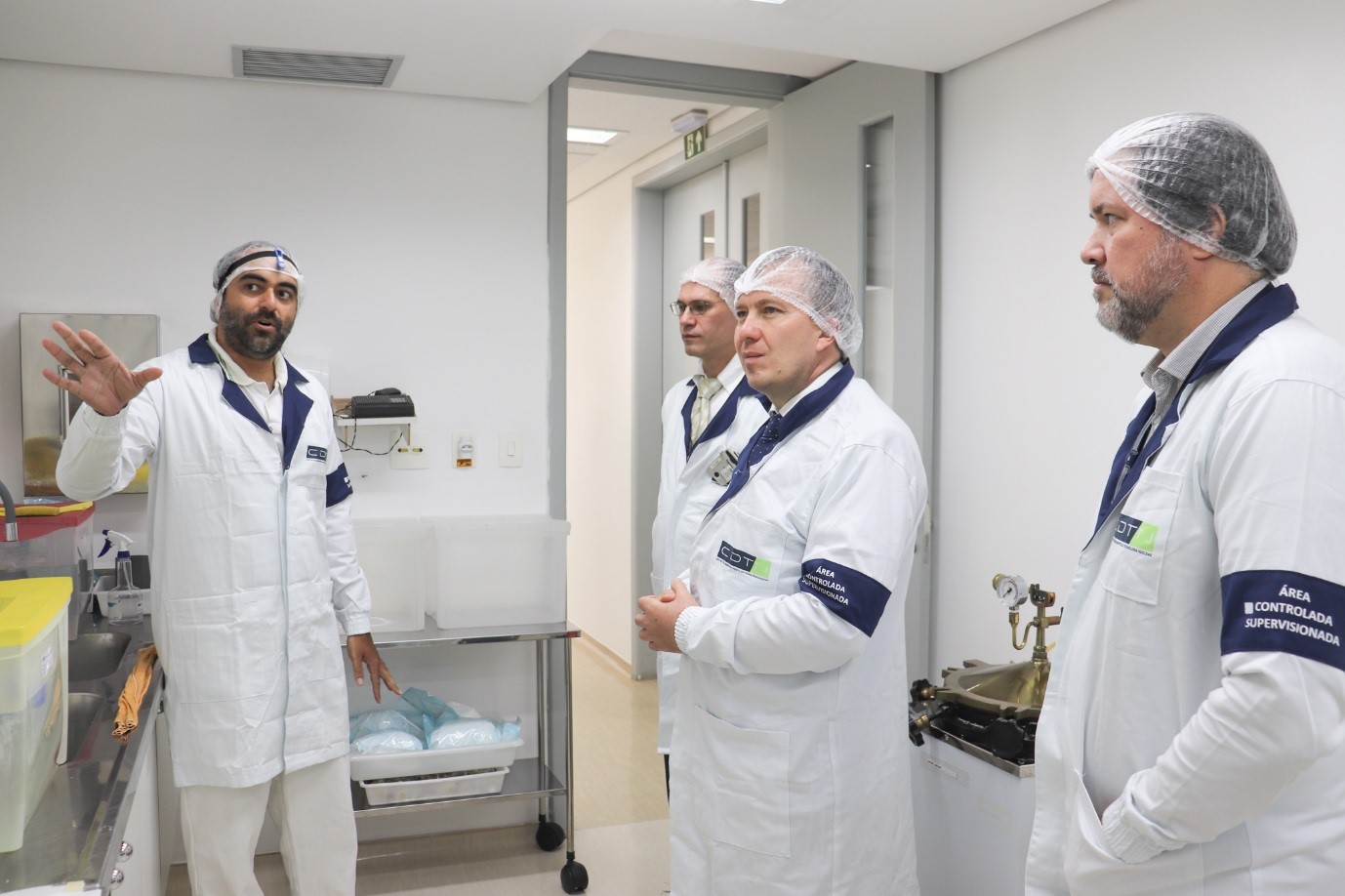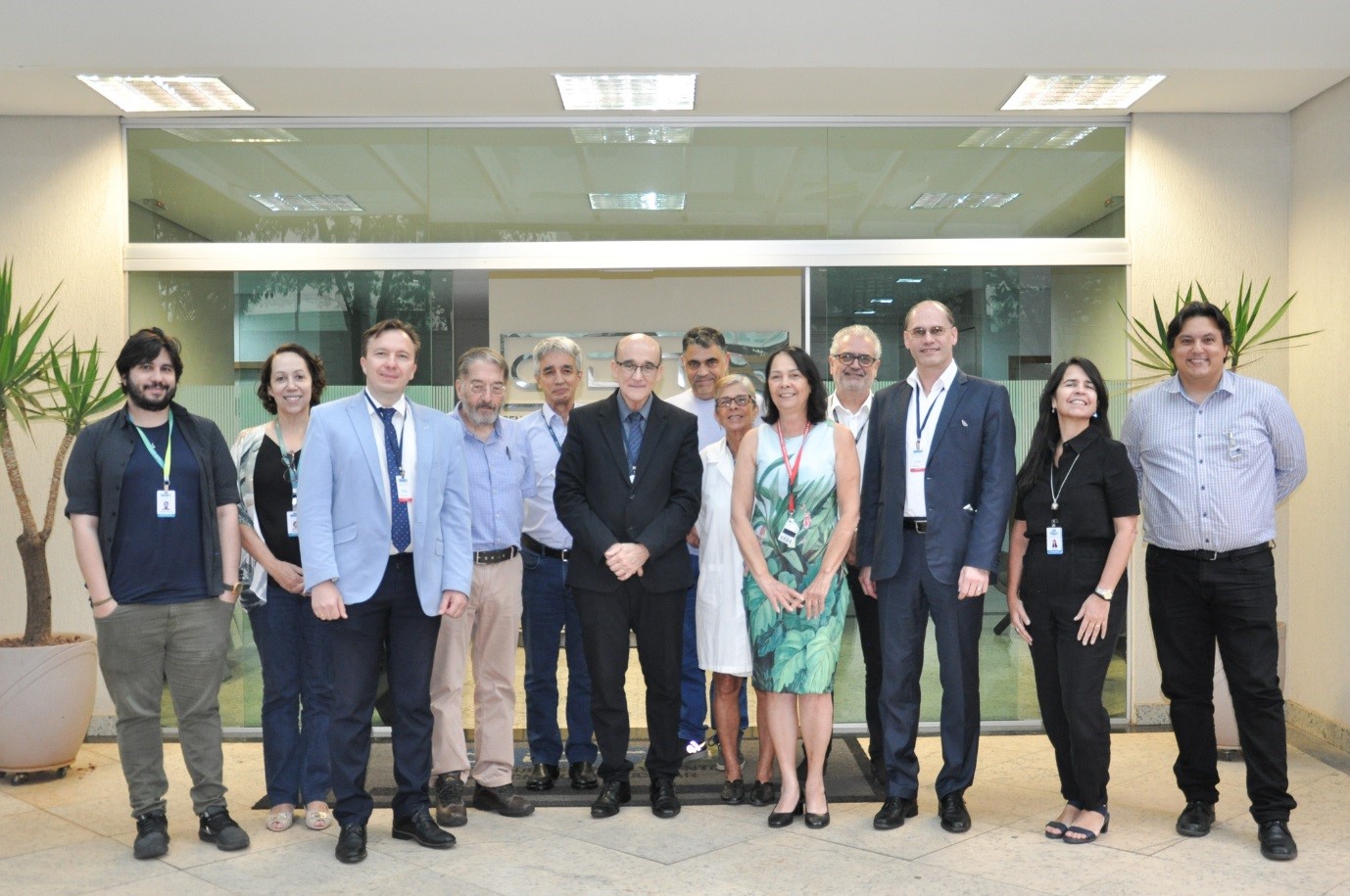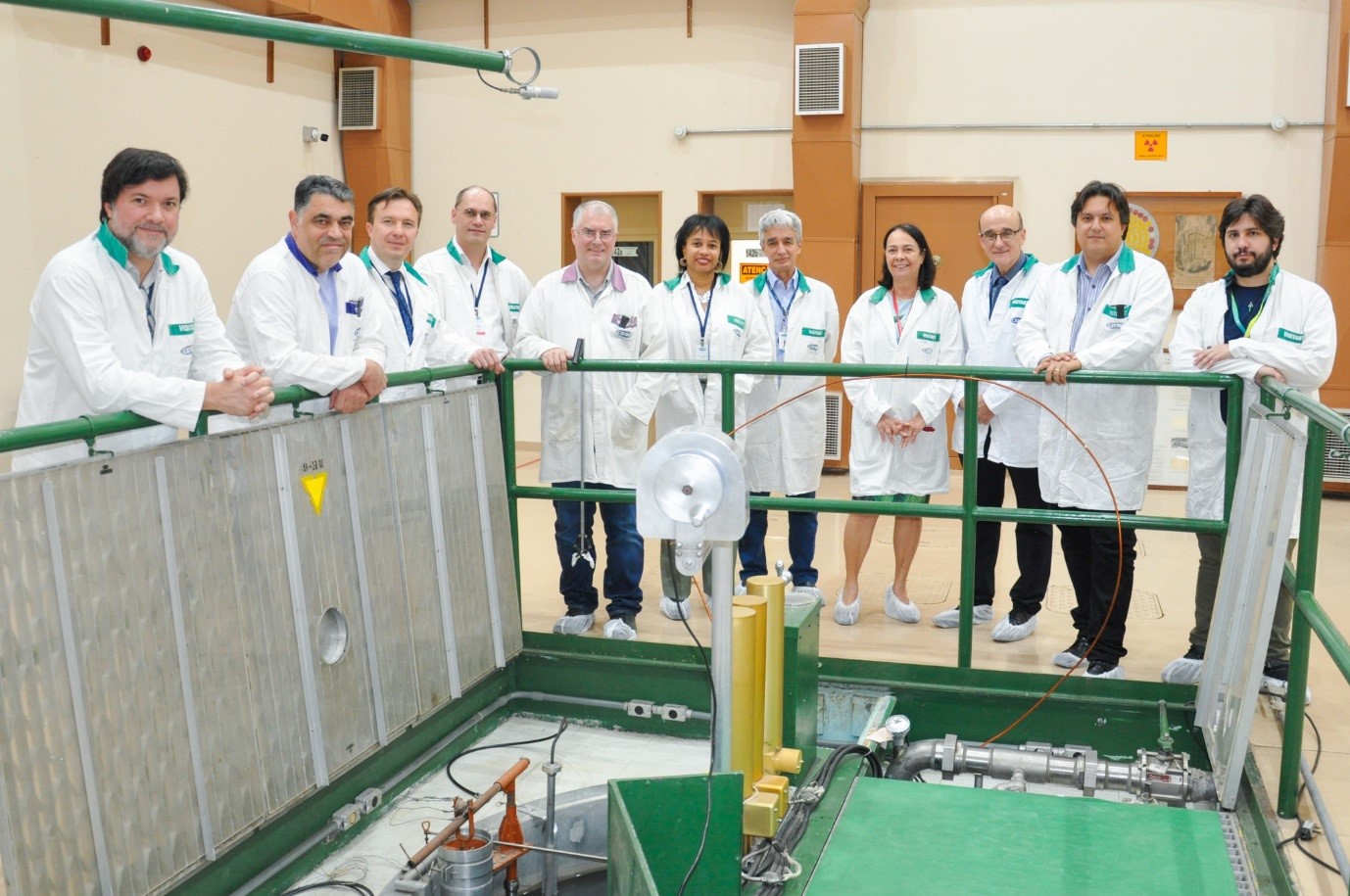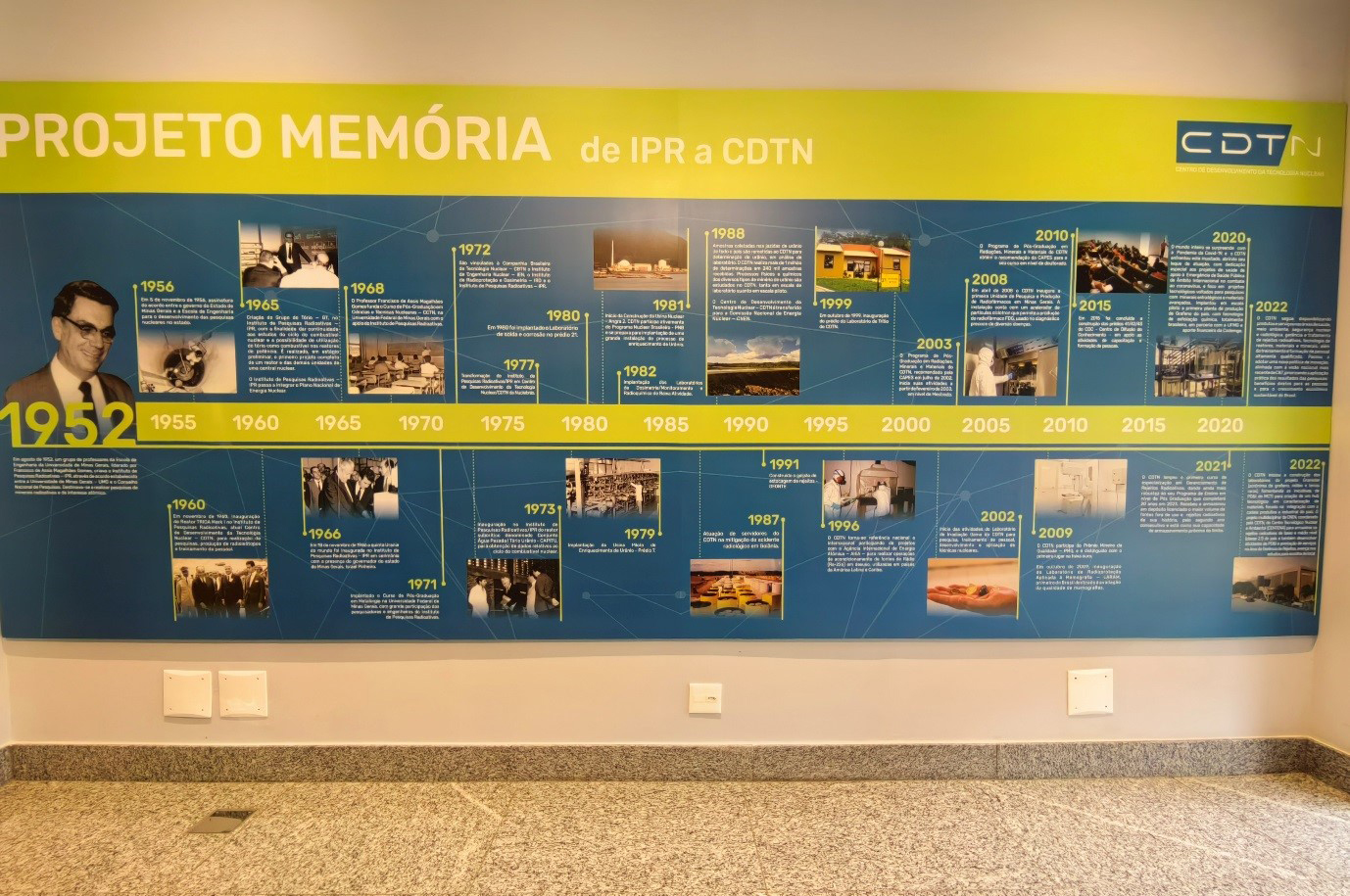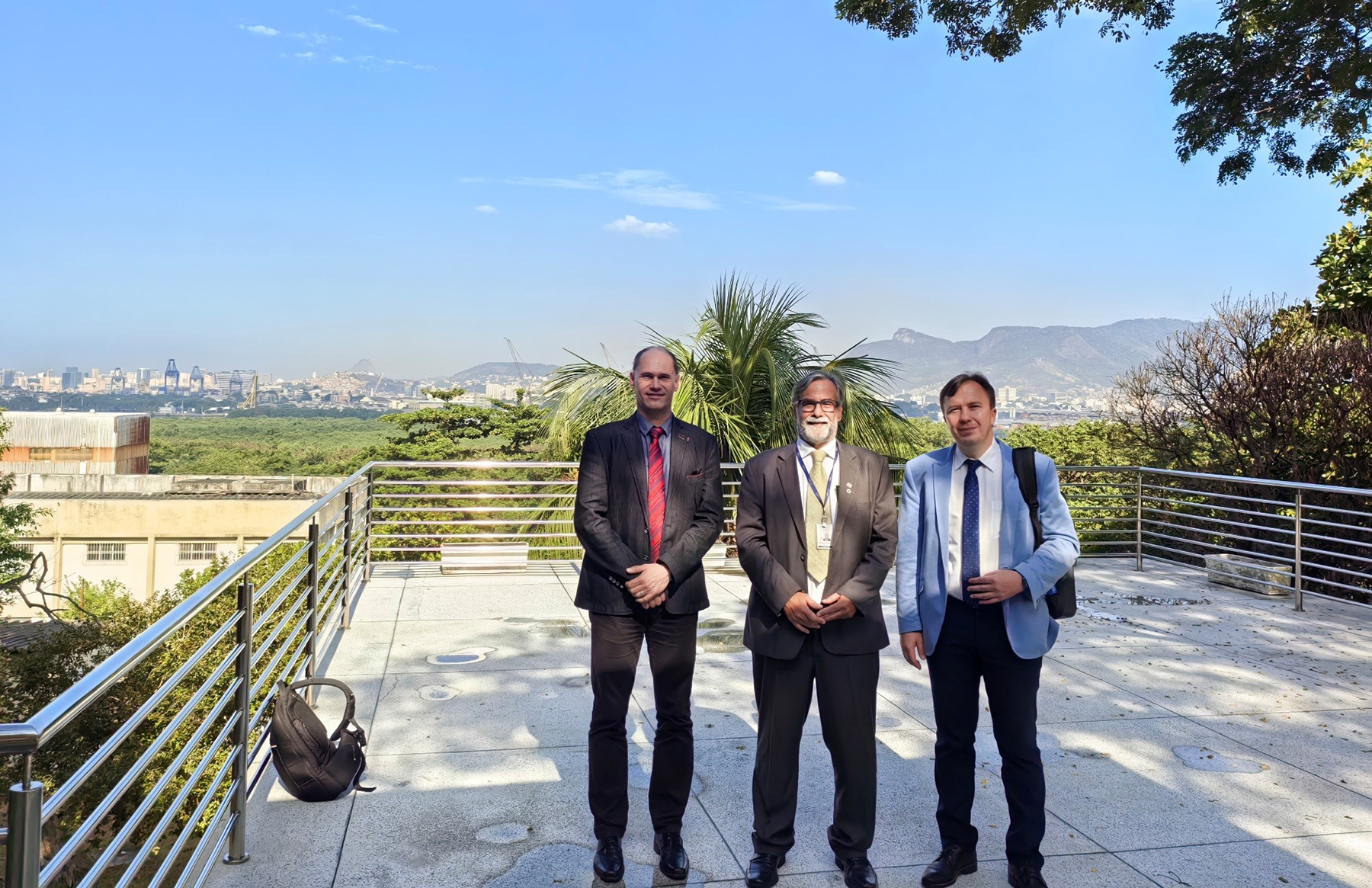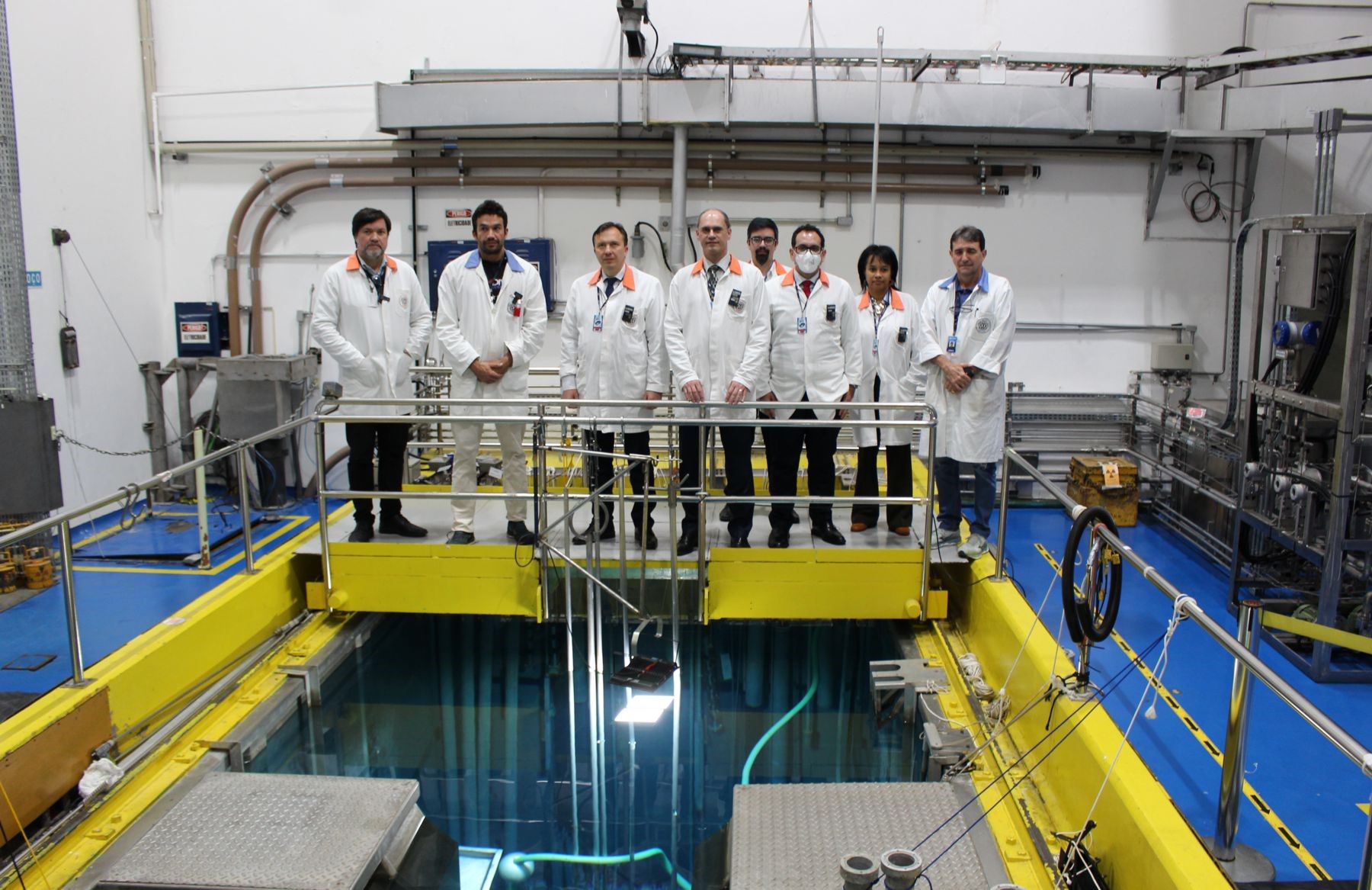JINR delegation visits Brazil: new steps and areas of cooperation
News, 07 June 2024
In the second half of May 2024, work continued on strengthening JINR–Brazil cooperation. A JINR delegation made an official visit to Brazil to participate in the Autumn Meeting of the Brazilian Physical Society (SBF) on 19–23 May in Florianópolis and in a seminar of the Faculty of Physics of the Federal University of Santa Catarina. On 27–29 May, the delegation visited the institutes of the National Nuclear Energy Commission (CNEN). During the visit, the parties outlined many areas of scientific cooperation and laid out plans to sign a memorandum of cooperation.
The Autumn Meeting is the largest condensed matter meeting in the country, bringing together about a thousand participants from Brazilian research organizations and universities. It was opened by SBF President, Professor Rodrigo Capas and Director of the Brazilian Nanotechnology National Laboratory (LNNano) of the Brazilian Centre for Research in Energy and Materials (CNPEM) in Campinas, Rector of the Federal University of Santa Catarina, Professor Irineu Manoel de Souza.
Deputy Head of the Department of Science Organization Activities, professor Norbert Kučerka hosted a special session “Collaboration opportunities at Joint Institute for Nuclear Research”, presenting the activities of JINR and the overall opportunities for Brazil-JINR cooperation. Professor Kholmirzo Kholmurodov, Frank Laboratory of Neutron Physics at JINR, presented an example of the Institute’s scientific results in the report “Performing molecular dynamics studies of nanosized systems combined with neutron scattering experiments”. Both presentations attracted a large audience with a wide range of interests. In particular, the attendees were interested to learn about the possibilities of accessing the IBR-2 Reactor and receiving help of scientists responsible for neutron scattering instruments. The aspects of cooperation between the Brazilian Physical Society and JINR were discussed; the research objectives include organic electronics and physical chemistry of interfaces. The parties proposed to conduct joint research of membranes using neutron scattering spectroscopy. Another subject of interest for Brazilian scientists was the issues of modelling molecular dynamics in various aspects of materials science.
After the meeting of the Physical Society, the possibilities of cooperation in JINR were discussed at a seminar of the Faculty of Physics of the Federal University of Santa Catarina, organized by member of the JINR Scientific Council, Professor Deborah Menezes. Special attention was paid to the possibilities of academic exchange. One of the participants turned out to be a student who participated in the START Programme organized by the JINR University Centre in 2018. Four years later, she is working on her Candidate’s thesis and is considering returning to Dubna as part of the JINR Postdoctoral Programme.
JINR delegation consisting of Deputy Directors for Science at the Frank Laboratory of Neutron Physics Norbert Kučerka and Sergey Kulikov was invited to discuss opportunities for JINR-Brazil cooperation at several institutes of the National Nuclear Energy Commission (CNEN). They were accompanied by the organizers of the visit CNEN Research and Development Director Wilson Aparecido Parejo Calvo and CNEN General Coordinator of International Affairs Viviane Simões. Brazil is currently managing four research reactors operating at the power levels ranging from 100 W to 5 MW, carrying out their construction, maintenance, and fuel production independently. The nuclear reactors play an important role in reactor physics, training, radioisotopes production and irradiation, research applications in neutron activation analysis and, to a limited capacity, neutron scattering. Isotope production and radiopharmacology using both nuclear reactors and cyclotron accelerators are heavily present in the Brazilian economy, wherein CNEN meets 85% of the country’s needs, facilitated by cooperation with Rosatom and companies of South Africa. To expand Brazilian competencies in neutron scattering techniques, a project of constructing the Brazilian Multipurpose Research Reactor (BMR) at 30 MW is currently underway.
On 27 May, the JINR delegation had the opportunity to visit the Nuclear Technology Development Centre (CDTN) of the CNEN located at Belo Horizonte. CDTN Director Amenonia Maria Ferreira Pinto presented an overview of the centre’s activities, and JINR delegation reported on the Institute’s research and educational programmes. The local facilities included in the programme of the scientific visit were Radiopharmacy Centre, Applied Physics Laboratory, and TRIGA Research Reactor.
On May 28, JINR delegation visited the Nuclear Engineering Institute (IEN) of the CNEN located in Rio de Janeiro. Following institutional presentations by IEN´s Director, Cristóvão Araripe Marinho and Norbert Kučerka, the following facilities were visited: Argonauta research reactor and associated facilities (Nuclear Measurement Laboratory, Radioisotopes Development Laboratory, Neutrongraphy Measurement Laboratory). Following the technical visits, IEN and the Institute for Radioprotection and Dosimetry (IRD/CNEN) presented their graduate programmes on nuclear science and technology, and radioprotection and dosimetry respectively, while Sergey Kulikov presented the main features of educational programmes at JINR – advanced training programmes and programmes for postdocs.
On the final day, 29 May, the delegation visited the Nuclear and Energy Research Institute (IPEN) of the CNEN at São Paulo. The participants listened to presentations on the structure and activities of IPEN, JINR and Northeast Regional Centre of Nuclear Sciences (CRCN-NE). Presentations on graduate or capacity building programmes of the institutes were made. Visits to the IEA-R1 Research Reactor and cyclotron accelerators took place.
As a result of the meetings and technical visits, the following topics of mutual interest were identified: development of research reactors and cold neutron sources, applied research at research reactors using various methods of materials science, life sciences, ecology, etc.; radiobiology and radioprotection; accelerator technologies and their applications; development of proton therapy systems; IT technologies and high-performance computing; training and academic exchange.
During the JINR delegation’s visit to the CNEN research centres and institutes and in the concluding discussions, both parties expressed a sincere interest in continuing and expanding the JINR-Brazil cooperation. CNEN, represented by its president Francisco Rondinelli Junior and Wilson Calvo, and JINR, represented by Norbert Kučerka and Sergey Kulikov, signed а record of discussions in which they agreed on taking the necessary steps for negotiating a Memorandum of Understanding. Besides the Memorandum, both parties recognized that an agreement on ministerial (Ministry of Science, Technology, and Innovation (MCTI) – JINR) or governmental level would be of mutual benefit, facilitating cooperation. CNEN will submit a report to the MCTI regarding the benefits of having such an agreement, with the record of discussions showing the interest of Brazilian institutions in cooperation with JINR.
